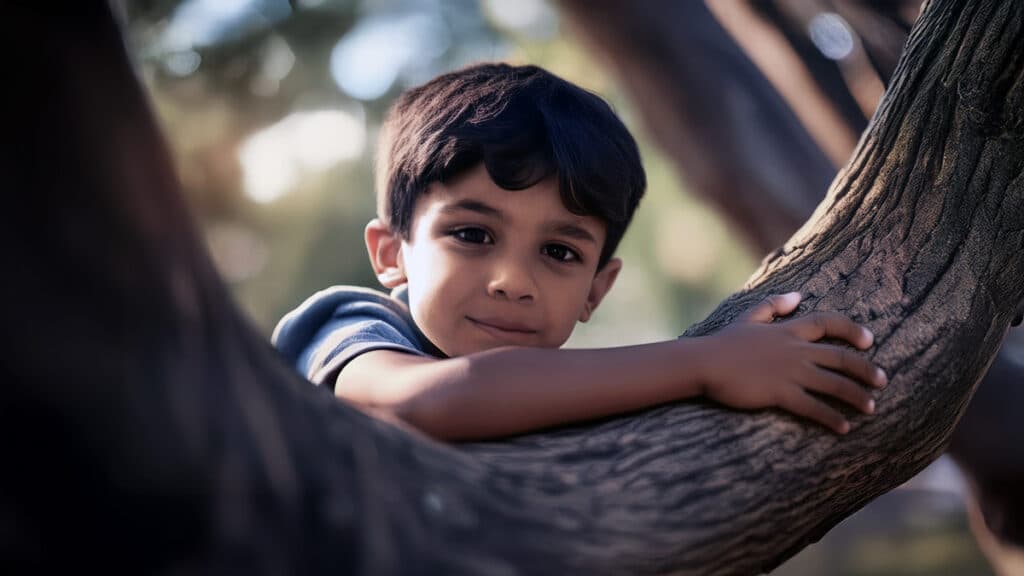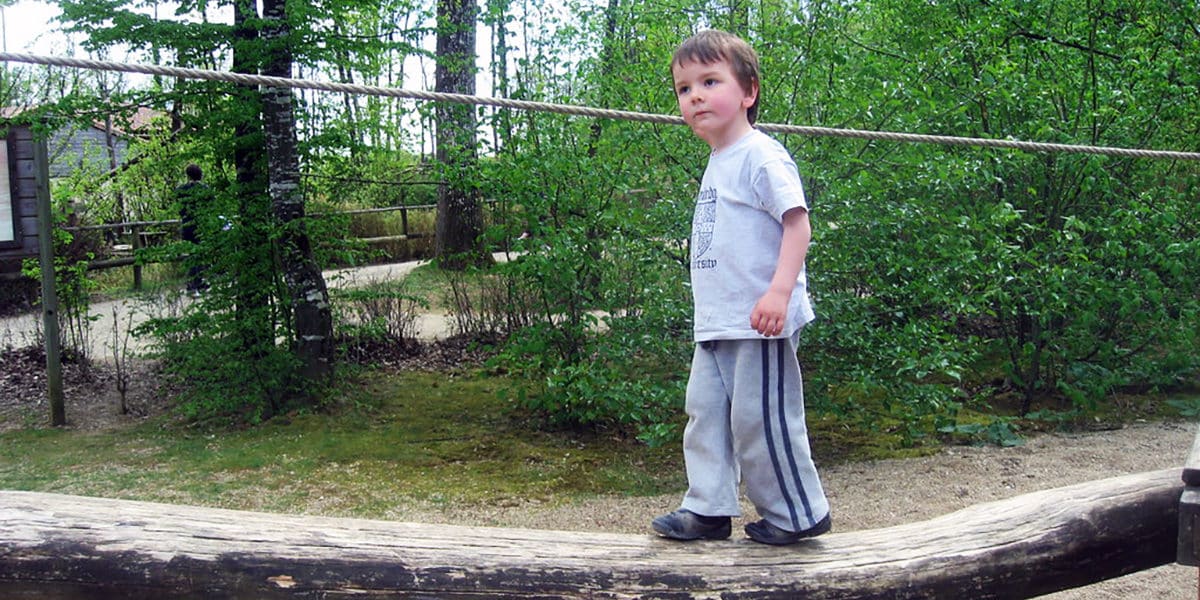Allowing children to engage in risky play, or adventurous, slightly hazardous activities, is an essential part of their development. Parents often have different comfort levels when it comes to risk, but these variations should not be mistaken for neglect or abuse.
Misunderstandings about risky play in early childhood often lead to misplaced accusations of bad parenting. To create a healthier discussion around child safety, we need to differentiate between responsible risk-taking and real harm.
What is Risky Play?
Risky play refers to activities that provide children with opportunities to explore, test their limits, and develop life skills. It includes experiences that involve uncertainty and the possibility of minor injuries, but these risks are essential for growth. Some common types of risky play include:
- Climbing to Great Heights – Children enjoy scaling trees, jungle gyms, or rock walls, learning how to balance and assess physical challenges.
- High-Speed Activities – Running at full speed, riding bikes down hills, or engaging in fast-paced games helps improve reflexes and coordination.
- Using Tools and Objects – Safely handling tools like hammers, ropes, or even pocket knives (under supervision) builds confidence and competence.
- Rough-and-Tumble Play – Wrestling and play-fighting with friends help children develop boundaries and social skills.
- Playing Near Natural Hazards – Exploring streams, climbing over logs, or playing near campfires encourages awareness and respect for the environment.
- Exploring Without Direct Supervision – Engaging in games where children can momentarily “disappear” from sight helps them develop independence.
A great example of this is when a child plays in a forest, gathering pine needles and pretending to cook over a pretend fire. While some may see this as harmless imaginative play, others may worry about the dangers of the outdoors. The perception of risk varies, but this type of play fosters creativity, independence, and environmental awareness.
Benefits of Risky Play
Many parents instinctively try to protect their children from danger, but shielding them from all risks can actually hinder their development. Risky play offers several benefits:
1. Physical Development
Climbing, running, and jumping improve balance, strength, coordination, and overall fitness. Children who engage in these activities develop better motor skills and agility.
2. Cognitive Growth
Assessing risks, making quick decisions, and problem-solving during play enhance a child’s critical thinking abilities. They learn cause-and-effect relationships and develop situational awareness.
3. Emotional Resilience
Falling down and getting back up helps children build confidence and emotional endurance. Facing manageable risks teaches them how to handle fear, stress, and setbacks.
4. Social and Communication Skills
Group play involving risk teaches negotiation, teamwork, and boundary-setting. Children learn to communicate their comfort levels and respect the limits of others.
5. Independence and Risk Management
When kids make their own choices during risky play, they develop a sense of responsibility. They learn to assess potential dangers and take appropriate precautions.
Differing Views on Risky Play
Not all parents have the same comfort level with risky play. One parent might encourage their child to climb a tree, while another may feel anxious about the possibility of a fall. These differences are influenced by personal experiences, cultural backgrounds, and individual risk tolerances.
We must recognize that just because one parent is more cautious than another, it doesn’t mean they are overprotective or negligent. Likewise, allowing a child to engage in risky play does not equate to careless parenting. There is a broad spectrum of acceptable parenting choices when it comes to managing risk.
Risky Play vs. Child Abuse
The term “child abuse” should not be thrown around lightly. There is a clear distinction between risky play and actual harm:
- Risky Play – Encouraging age-appropriate risks in a safe environment, allowing children to grow and develop essential skills.
- Child Abuse – Inflicting intentional harm, neglect, or placing a child in situations that are truly dangerous.
When parents are accused of abuse simply for making different choices about acceptable risks, it weakens real efforts to protect children who are genuinely in danger.
What Child Abuse Actually Is
To be clear child abuse and neglect are criminal acts. The definition of what constitutes child abuse and neglect can vary from state-to-state and province-to-province, but usually they encompass issues related to physical or emotional harm, and neglect or abandonment.
Forms of child abuse are serious acts that impair a child’s physical and emotional safety, their right to live without fear and thrive as they grow. Oreos and formula feeding do not fall into those categories.
Physical, emotional and sexual abuse are traumatic events for both children and adults. For children in particular, experiencing this type of trauma can lead to life-long psychological and physical consequences. This type of trauma can impact a person well into adulthood.
How Risk Perception Affects Parenting Choices

Parents must navigate many risk-based decisions in everyday life—whether it’s allowing their child to ride a bike without training wheels, climb a playground structure, or play independently at the park. These choices should not be judged harshly unless there is clear evidence of harm.
1. Custody Disputes and False Accusations
In family court cases, differing parenting styles sometimes lead to accusations of neglect or endangerment. However, it’s vital to distinguish between actual risk and reasonable differences in parenting. False allegations can have serious consequences and undermine legitimate cases of child endangerment.
2. Helicopter Parenting vs. Free-Range Parenting
Some parents adopt a highly cautious “helicopter parenting” approach, while others embrace “free-range parenting,” allowing children to explore more freely. Both approaches have their place, and neither should be misinterpreted as neglectful or abusive without substantial evidence.
Parents Encounter Many Risk Decisions
Something I became acutely aware of when I was pregnant with my first child were that some parents labeled decisions or risks they wouldn’t take with their own children as “child abuse” when those risks were in fact anything but. We need to stop doing this. It is harsh and damaging to other parents and disrespectful to those of us who have survived actual child abuse.
Formula feeding is not child abuse. Crib bumpers are not child abuse. Co-sleeping is not child abuse. Giving your little one a chicken nugget is not child abuse. Crying it out is not child abuse. Returning to work after having children is not child abuse.
Let me be clear, if you suspect a child is being abused by a caregiver, you have a moral and legal obligation to contact the proper authorities in order to protect that child. When you recognize something as being child abuse and then do nothing substantive to intervene to help that child you are morally (and sometimes legally) culpable.
If your response to being told to alert the authorities to what you believe is child abuse is, “they won’t do anything, they don’t care about this kind of stuff,” then chances are that what you’re witnessing is not child abuse. Rather, it is a practice that you disagree with.
Encouraging Safe Risky Play
To strike a balance between risk and safety, parents can take practical steps to encourage healthy exploration:
- Supervise Without Overcontrolling – Give children room to take calculated risks while being available to intervene if necessary.
- Teach Risk Awareness – Instead of banning risky activities, help children understand potential dangers and how to navigate them safely.
- Provide a Safe Environment – Ensure that play areas are appropriate for the child’s age and abilities.
- Encourage Gradual Skill-Building – Allow children to progressively build their confidence and competence in activities like climbing or biking.
By fostering a culture that values safe, reasonable risk-taking, we can raise children who are prepared to navigate the challenges of the real world.
Contentious Child Custody Decisions
Contested child custody matters can often be difficult. A child custody plan may not be agreed by parents until after months or years, if ever.
Risk and the best interests of the child are central issues in mediation and court orders. Abuse allegations are rife, in part because of the strategic advantage they can give one parent over the other.
Generally speaking, the parties involved are not trying to inflict any kind of child abuse, though it can certainly happen because of separation conflict. Parental alienation has potentially devastating consequences for a child’s relationships and future. The same goes for false allegations of abuse, which often accompany the use of alienation tactics.
But most parents probably contest custody because they feel the child will thrive under their care. Judges also try to devise a good custody schedule and parenting plan for that child. Abuse allegations should only be made when they are warranted. They should also be set aside where the only problem is actually a difference of opinion over which custody schedule is best.
Let’s be Careful With What We Say
Language matters. When you say that something you disagree with is child abuse, think about what you are actually saying: you are saying that the child is suffering physical or emotional harm from the parent’s actions.
You’re also saying that it’s in the child’s best interest to be removed from their parent’s care and placed with other family members, or a family they do not know. And you are saying that the parent’s actions are deserving of criminal prosecution for their actions. Is that truly what you mean to suggest when you say that allowing a toddler to watch TV is child abuse?
For the sake of everyone involved, the next time you see a parent doing something that you disagree with, stop and say out loud what the action is in conjunction with the phrase “is child abuse.” If it sounds ridiculous when you say it, chances are it’s not actually child abuse.

